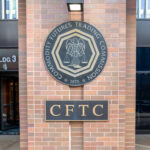Clearing Company looks to start prediction market with CFTC application

San Francisco financial services company Clearing Company has filed an application with the Commodity Futures Trading Commission to become a Derivatives Clearing Organization so it can launch prediction markets.
If approved, the Clearing Company said it would create a clearinghouse purpose-built for prediction markets, which, according to The Wall Street Journal, will focus on developing, rather than building its own website and app for users.
The company plans to apply for a Commodity Futures Trading Commission exchange license, with the expectation that its prediction market will launch in late 2026.
Clearing Company will be led through the Derivatives Clearing Organization application process by Kalshi’s former Chief Compliance Officer, Sam Schwarz, who is Clearing Company’s Regulatory and Compliance Strategy Leader.
“A stablecoin-native clearing model allows derivatives markets to operate transparently and efficiently on-chain, while meeting the same regulatory standards as traditional registrants,” Schwarz said in a news release. “This filing represents a meaningful step forward for the industry, and we look forward to working with the CFTC and its excellent staff throughout this process.”
This news comes after trading firm Jump Trading began creating markets on sports event contracts offered by Kalshi, indicating that the financial sector is starting to take prediction markets more seriously.
Abi Bray brings strong researching skills to the forefront of all of her writing, whether it’s the newest slots, industry trends or the ever changing legislation across the U.S, Asia and Australia, she maintains a keen eye for detail and a passion for reporting.
Verticals:
Sectors:
Topics:
Dig Deeper
The Backstory
Why this application lands at a pivotal moment
The Clearing Company’s push to become a Commodity Futures Trading Commission-regulated clearinghouse for prediction markets arrives as institutional players test whether event contracts can scale under federal oversight. The filing signals a bid to normalize on-chain clearing and settlement for outcomes-based markets while keeping to the same risk, custody and customer safeguards expected of traditional derivatives venues. It also frames a two-year runway to late 2026 that will test whether capital, compliance talent and technology can converge before competitors lock in first-mover advantages.
Regulatory sequencing matters. To offer event contracts at scale, firms typically need a designated contract market license to list products and a derivatives clearing organization license to stand behind them. Clearing Company is starting with clearing first and has said it will seek an exchange license next, positioning itself to plug into listing partners or build its own venue later. The approach mirrors a broader shift: companies with crypto and fintech roots pursuing federal charters to anchor businesses that courts and state regulators have sometimes pigeonholed as wagering.
The company’s leadership bench underscores that strategy. It has tapped a former chief compliance officer from a leading event-contract venue to shepherd its application, a signal that it expects scrutiny on market integrity, settlement mechanics and retail protections. The move follows visible institutional activity in event contracts this year, including proprietary trading firms making markets in sports outcomes, and suggests the sector is graduating from experiment to execution.
A wave of CFTC bids reshapes the field
Clearing Company is not alone in trying to build federally supervised infrastructure for event markets. Crypto exchange Kraken set the tone by acquiring CFTC-licensed Small Exchange for US$100 million, a deal that management framed as the foundation for a fully U.S.-native derivatives stack and a path into prediction markets. The company confirmed its interest in the space after the purchase, indicating that a regulated venue could bridge spot, futures and margin activity with new event products. Read more on the acquisition and its implications in Kraken’s Small Exchange deal.
New entrants are also angling for both the listing and clearing pillars. New York-based ProphetX has filed for registration as a designated contract market and a derivatives clearing organization to operate a sports-focused event exchange under CFTC oversight, touting a request-for-quote parlay mechanism meant to mimic institutional trading protocols. The company expects a multi-year review into 2026. Details are in ProphetX’s dual application.
Together, these filings chart a route for prediction markets that looks less like offshore crypto and more like regulated derivatives. They also raise competitive stakes. A firm that controls clearing can influence product design, margin policy and access, potentially becoming the default backbone for multiple front ends. Conversely, an exchange-first player can dominate listings and liquidity. Clearing Company’s bet on a stablecoin-native clearing model puts it in the former camp, seeking to be the settlement utility others build around.
Federal approvals meet state pushback
Even with federal charters, prediction market operators face a thicket of state interpretations, particularly around sports outcomes. Kraken’s move crystallized tensions when state regulators in Nevada, New Jersey and Massachusetts flagged that sports event contracts can constitute wagering even if listed on federally supervised exchanges. The Nevada Gaming Control Board, for example, issued a note clarifying its view that these contracts are wagering products. That backdrop is covered in coverage of Kraken’s acquisition.
This federal-state friction shapes product scope and distribution. A CFTC-registered market might be regulated for market conduct and customer protections, yet still find its contracts blocked or restricted on a state-by-state basis if they are deemed sports betting. For Clearing Company, which aims to clear prediction contracts transparently on-chain, the operational question is less about technology and more about where and what can legally trade. That uncertainty feeds into timelines, capital plans and partnerships with brokers and liquidity providers.
Big operators watch — and wait
Incumbent sportsbooks and igaming operators are tracking the category but remain cautious. BetMGM told investors it has the capability to compete in prediction markets but does not plan to be a first mover given opposition from tribes, states and dozens of attorneys general. The operator emphasized it would not be caught flat-footed yet underscored legal risk and political headwinds. The posture reflects a broader industry calculus: wait for clearer rules, then scale with existing customer bases if the economics merit it. Context on that stance is in BetMGM’s latest investor briefing.
That caution creates an opening for specialized platforms and crypto-native firms willing to shoulder early regulatory costs. It also suggests that if federal licensure prevails and state objections soften, larger operators could enter quickly, compressing margins for pioneers. Clearing Company’s 2026 target window may coincide with that inflection, making early clarity on contract categories and distribution channels critical.
Policy pressure from Beacon Hill to Washington
Statehouses are not waiting for federal outcomes. In Massachusetts, lawmakers are weighing H4431, a bill that would ban dual-currency sweepstakes while simultaneously authorizing online casino games for licensed casinos. The proposal signals a tightening around gray-area models and a preference to channel demand into taxed, licensed products. The legislative debate is summarized in our coverage of the Massachusetts bill, and the text is available on the legislature’s site at H4431.
Industry groups have pushed back, arguing bans stifle innovation and risk driving consumers offshore. The Social Gaming Leadership Alliance, for instance, publicly opposed the Massachusetts proposal, urging “smart rules” over prohibition. Its statement can be read at the SGLA’s website. For prediction markets, the sweepstakes fight is instructive: when states tighten ambiguous categories, businesses often pivot toward clearer, federally supervised frameworks—or exit entirely.
At the federal level, leadership changes could also shape oversight. Recent nominations and policy signals around the CFTC suggest a willingness to entertain new market structures, including event contracts, while stressing investor protections. Applicants like Clearing Company and ProphetX have tailored filings to that posture, emphasizing transparency, risk management and consumer safeguards rooted in derivatives rules.
What to watch through 2026
Three threads will determine whether prediction markets mainstream under U.S. rules. First, can applicants secure both exchange and clearing licenses and launch within projected timelines without diluting product scope to appease state concerns. Second, will state regulators maintain that sports outcomes are wagering even on CFTC venues, limiting distribution and dampening liquidity. Third, how quickly do majors enter once rules settle, and do they favor building, buying or partnering with regulated clearinghouses.
Clearing Company’s filing is a bet that infrastructure, not just front-end apps, will define the winners. If a stablecoin-native clearing model demonstrates lower friction, better transparency and robust controls, it could become the backbone for multiple event venues. If not, exchange-led entrants with integrated clearing could consolidate share. Either way, the next 18–24 months will test whether prediction markets can move from novelty to a durable asset class within U.S. regulation—and whether federal oversight can coexist with disparate state views on where trading ends and wagering begins.








